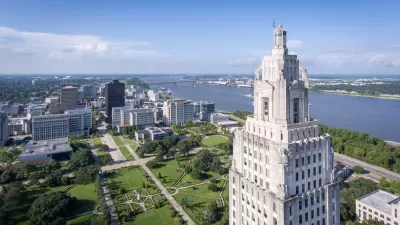Suzy Khimm reports on a new paper that demonstrates that, contrary to widely held beliefs, the country’s top metropolitan areas became more segregated from 1995 to 2006.
Khimm notes that many theorized that the housing bubble would have had a desegregating effect, as "easy credit may have helped desegregate low-income neighborhoods as minorities became more upwardly mobile."
However, the paper, published by economists Amine Ouazad and Romain Ranciere in VoxEU, "found that while black families tended to move to more integrated neighborhoods, upwardly mobile Hispanics were more likely to self-segregate."
Furthermore, Khimm points out that affluent white families were able to use easy credit as leverage to buy into less integrated areas.
Even more stunning than the unexpected impact was that, "the segregation that resulted from the credit boom overshadowed what court-ordered desegregation plans had achieved from 1971 to 1986."
FULL STORY: How the housing bubble increased segregation

Maui's Vacation Rental Debate Turns Ugly
Verbal attacks, misinformation campaigns and fistfights plague a high-stakes debate to convert thousands of vacation rentals into long-term housing.

Planetizen Federal Action Tracker
A weekly monitor of how Trump’s orders and actions are impacting planners and planning in America.

In Urban Planning, AI Prompting Could be the New Design Thinking
Creativity has long been key to great urban design. What if we see AI as our new creative partner?

King County Supportive Housing Program Offers Hope for Unhoused Residents
The county is taking a ‘Housing First’ approach that prioritizes getting people into housing, then offering wraparound supportive services.

Researchers Use AI to Get Clearer Picture of US Housing
Analysts are using artificial intelligence to supercharge their research by allowing them to comb through data faster. Though these AI tools can be error prone, they save time and housing researchers are optimistic about the future.

Making Shared Micromobility More Inclusive
Cities and shared mobility system operators can do more to include people with disabilities in planning and operations, per a new report.
Urban Design for Planners 1: Software Tools
This six-course series explores essential urban design concepts using open source software and equips planners with the tools they need to participate fully in the urban design process.
Planning for Universal Design
Learn the tools for implementing Universal Design in planning regulations.
planning NEXT
Appalachian Highlands Housing Partners
Mpact (founded as Rail~Volution)
City of Camden Redevelopment Agency
City of Astoria
City of Portland
City of Laramie





























